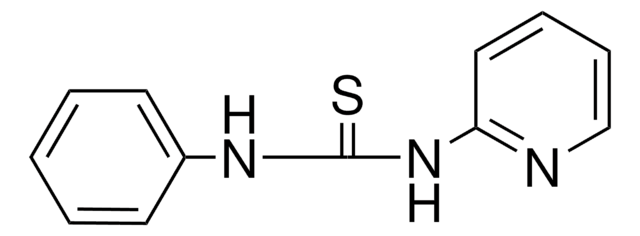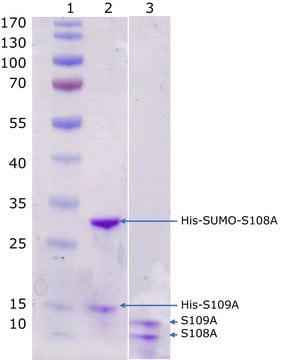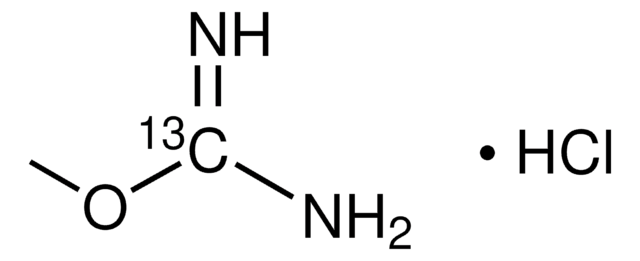SML2296
GSK180736A
≥98% (HPLC)
Synonym(s):
4-(4-Fluorophenyl)-1,2,3,4-tetrahydro-N-1H-indazol-5-yl-6-methyl-2-oxo-5-pyrimidinecarboxamide, GSK 180736A
Sign Into View Organizational & Contract Pricing
All Photos(1)
About This Item
Empirical Formula (Hill Notation):
C19H16FN5O2
CAS Number:
Molecular Weight:
365.36
MDL number:
UNSPSC Code:
12352200
NACRES:
NA.77
Recommended Products
Assay
≥98% (HPLC)
form
powder
color
white to beige
solubility
DMSO: 2 mg/mL, clear
storage temp.
2-8°C
SMILES string
O=C(NC1=CC=C(NN=C2)C2=C1)C3=C(C)NC(NC3C4=CC=C(F)C=C4)=O
Biochem/physiol Actions
GSK180736A is a potent and selective dual inhibitor of a ROCK1 (Rho-associated, coiled-coil-containing protein kinase) and GRK2 (G protein-coupled receptor kinase 2). GSK180736A binds to the GRK2 active site. GSK180736A produces a significant cardiomyocytes contraction at 1 μM.
Storage Class Code
11 - Combustible Solids
WGK
WGK 3
Flash Point(F)
Not applicable
Flash Point(C)
Not applicable
Certificates of Analysis (COA)
Search for Certificates of Analysis (COA) by entering the products Lot/Batch Number. Lot and Batch Numbers can be found on a product’s label following the words ‘Lot’ or ‘Batch’.
Already Own This Product?
Find documentation for the products that you have recently purchased in the Document Library.
Renee Bouley et al.
Molecular pharmacology, 92(6), 707-717 (2017-10-27)
G protein-coupled receptor kinases (GRKs) phosphorylate activated receptors to promote arrestin binding, decoupling from heterotrimeric G proteins, and internalization. GRK2 and GRK5 are overexpressed in the failing heart and thus have become therapeutic targets. Previously, we discovered two classes of
Clark A Sehon et al.
Journal of medicinal chemistry, 51(21), 6631-6634 (2008-10-10)
Recent studies using known Rho-associated kinase isoform 1 (ROCK1) inhibitors along with cellular and molecular biology data have revealed a pivotal role of this enzyme in many aspects of cardiovascular function. Here we report a series of ROCK1 inhibitors which
Kristoff T Homan et al.
ACS chemical biology, 10(1), 310-319 (2014-09-23)
Selective inhibitors of individual subfamilies of G protein-coupled receptor kinases (GRKs) would serve as useful chemical probes as well as leads for therapeutic applications ranging from heart failure to Parkinson's disease. To identify such inhibitors, differential scanning fluorimetry was used
Our team of scientists has experience in all areas of research including Life Science, Material Science, Chemical Synthesis, Chromatography, Analytical and many others.
Contact Technical Service



![tert-Butyl 4-[methoxy(methyl)carbamoyl]piperidine-1-carboxylate AldrichCPR](/deepweb/assets/sigmaaldrich/product/structures/262/563/6ebf90d4-42a2-4517-ba3e-8f112afe3661/640/6ebf90d4-42a2-4517-ba3e-8f112afe3661.png)




